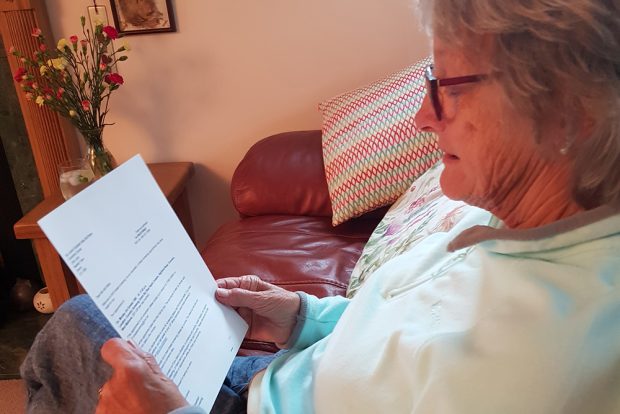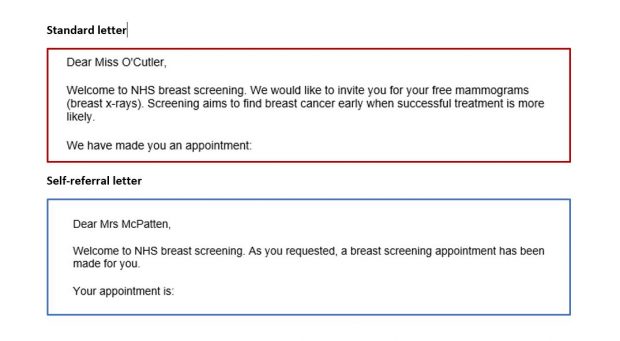
We have created a new national self-referral template letter that all breast screening services must use to send to women who have self-referred into the programme.
Breast screening is routinely offered to women aged 50 to their 71st birthday in England. Women who are 71 or over can still have screening by contacting their local screening unit and referring themselves.
The new self-referral letter acknowledges that these women have requested screening.

It’s very important the new SR0319 self-referral letter is used rather than the national template SR0319 invite letter for women who self-refer.
Both template letters are available in Crystal Reports (which have been shared through national cascades) and are on the National Breast Screening System (NBSS) website now.
PHE Screening will be reviewing all national letters and communications sent out by local screening providers so it is important the correct ones are used.
Standard letters now in use
Many thanks for your help in implementing the new national templated letters.
The 7 national templated letters that should be fully in use by now are:
- SR0319 DNA1F1 – DNA first time, with second timed appointment
- SR0319 DNAOP – DNA open invitation
- SR0319 Invite – invitation
- SR0319 PM – Partial mammogram
- SR0319RC – Recall invitation
- SR0319 – Routine Recall result
- SR0319TR – Technical recall
PHE Screening blogs
PHE Screening blogs provide up to date news from all NHS screening programmes. You can register to receive updates direct to your inbox, so there’s no need to keep checking for new blogs. If you have any questions about this blog article, or about population screening in England, please contact the PHE screening helpdesk.
2 comments
Comment by Nick Smith posted on
Hi, You say in this blog it is very important that the new form is used. Can you explain why ? Thanks
Comment by Andrew Anderson posted on
Dear Nick
The new self-referral letter acknowledges that these women have requested screening. This is in contrast with the wording ‘we would like to invite you for your mammogram’ in the standard national letter.
More generally, breast screening is a national programme and women should be receiving the same information wherever they are screened. The national templates have been approved for use by a multi-stakeholder group, including service users.
Hope this helps.
Best wishes